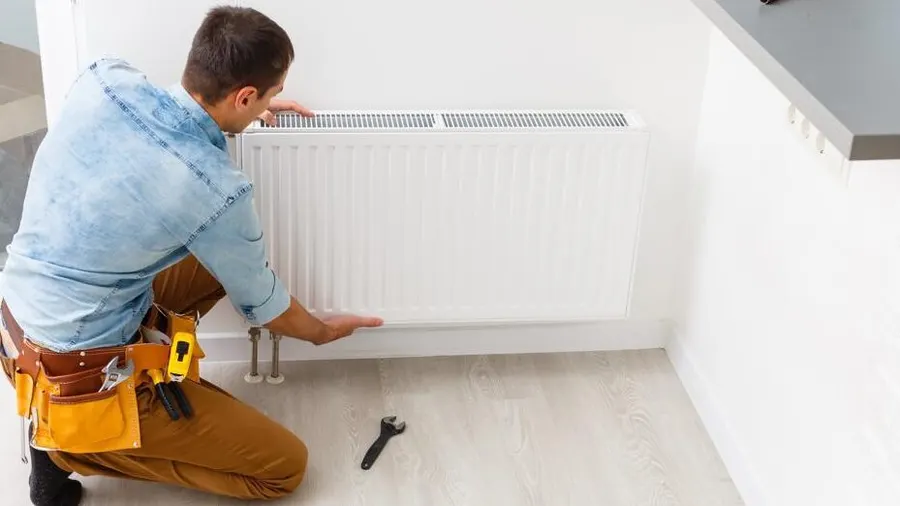Consider some upgrades if you’ve noticed changes in your heating system’s performance lately. Your old radiator has been a reliable companion over the years, but have you stopped and thought about When to Replace Your Old Radiator?
There are a few subtle signs that it could send you, signalling that a replacement might be in order. Stay tuned to discover when it might be the right time to make a change that could significantly impact your heating efficiency and overall comfort.
Inconsistent Heating Performance
If your old radiator is showing inconsistent heating performance, consider a replacement. One common issue with old radiators is that they may heat up unevenly, leaving some rooms too warm while others remain chilly. This can be frustrating and uncomfortable, especially during colder months.
Another factor to consider is the colour of your radiator. Dark-coloured radiators absorb more heat and can be less energy-efficient than lighter-coloured ones.
When looking for a new radiator, prioritise energy-efficient models. These radiators are designed to provide consistent heating while helping you save on energy bills. Additionally, modern radiators come with advanced settings that allow you to control the temperature more precisely, ensuring optimal comfort in your home.
Age of the Radiator
Considering the age of your radiator is crucial when determining if it’s time for a replacement, as older radiators may be less efficient and more prone to issues. Radiators have a typical lifespan of about 15-20 years. The internal components can deteriorate as they age, leading to reduced heat output and potential leaks. Older radiators may accumulate sediment and debris over time, hindering their performance.
If your radiator is nearing or has surpassed this age range, consider a replacement to improve the overall efficiency of your heating system. Newer models are designed to be more energy-efficient, providing better heat distribution throughout your space. Additionally, modern radiators come in various styles and sizes, allowing you to choose one that functions well and complements your home’s aesthetic.
Remember that replacing an older radiator with a new, more efficient model can lead to long-term cost savings on your energy bills.
Corrosion and Rust
Check for signs of corrosion and rust on your radiator to assess its structural integrity and potential need for replacement. Corrosion and rust are common issues in older radiators, especially in metal-components systems. These signs can indicate leaks, weakening metal, and potential failure. Look for discoloured patches, flaking paint, or any visible signs of rust on the radiator’s surface. Pay close attention to areas around valves, seams, and joints, as they’re more prone to corrosion. If addressed, corrosion can lead to leaks and inefficiencies in your heating system.
Corrosion and rust not only impact the radiator’s performance but can also affect the overall heating system’s lifespan. Sometimes, minor corrosion can be repaired through professional cleaning and sealing. However, extensive rust or corrosion may require a complete radiator replacement to ensure efficient heating and prevent further damage. Regular maintenance and inspections can help detect corrosion early on and save you from potentially costly repairs or replacements.
Unusual Noises
Listen closely to your radiator for any unusual noises that may indicate underlying issues with its functionality. Hearing loud banging or clanging sounds from your radiator could be a sign of air trapped in the system. This air can cause pressure imbalances, leading to these disruptive noises. To fix this, you may need to bleed the radiator to release the trapped air.
Sizzling or hissing sounds could indicate a build-up of sludge or debris within the radiator. This build-up can obstruct the flow of water and reduce the efficiency of your heating system. Flushing your radiator can help remove these blockages and restore proper functioning.
Additionally, gurgling noises might suggest a water leak within the radiator or the connected pipes. It’s crucial to address leaks promptly to prevent water damage and maintain the effectiveness of your heating system. If you notice any of these unusual noises, it’s advisable to consult a professional to diagnose and resolve the issue before it escalates.
Rising Energy Bills
To lower your energy bills, assess the efficiency of your heating system and consider potential upgrades. Rising energy bills often indicate that your current system isn’t running as efficiently as it could. Older radiators may need help to heat your home effectively, causing your heating system to work harder and use more energy.
Upgrading to newer, more energy-efficient models can help you save on your monthly bills in the long run.
Another factor contributing to rising energy bills could be poor insulation in your home. Heat can escape easily without proper insulation, forcing your heating system to compensate by running more frequently and consuming more energy. By improving your home’s insulation, you can retain heat better and reduce the workload on your heating system, leading to lower energy costs.
Regular heating system maintenance is also essential in keeping your energy bills in check. Dirty filters, clogged vents, or malfunctioning components can all cause your system to operate inefficiently, driving up your energy expenses. You can ensure that your heating system runs smoothly and cost-effectively by keeping up with maintenance tasks and promptly addressing any issues.
Conclusion
You now know When to Replace Your Old Radiator if you notice inconsistent heating, ageing, corrosion, strange noises, or increasing energy bills.
By upgrading to a newer, more efficient model, you can improve the overall performance of your heating system and save on energy costs in the long run.
Take your time with your old radiator completely fails – consider switching sooner rather than later for a more comfortable and cost-effective home heating experience.
